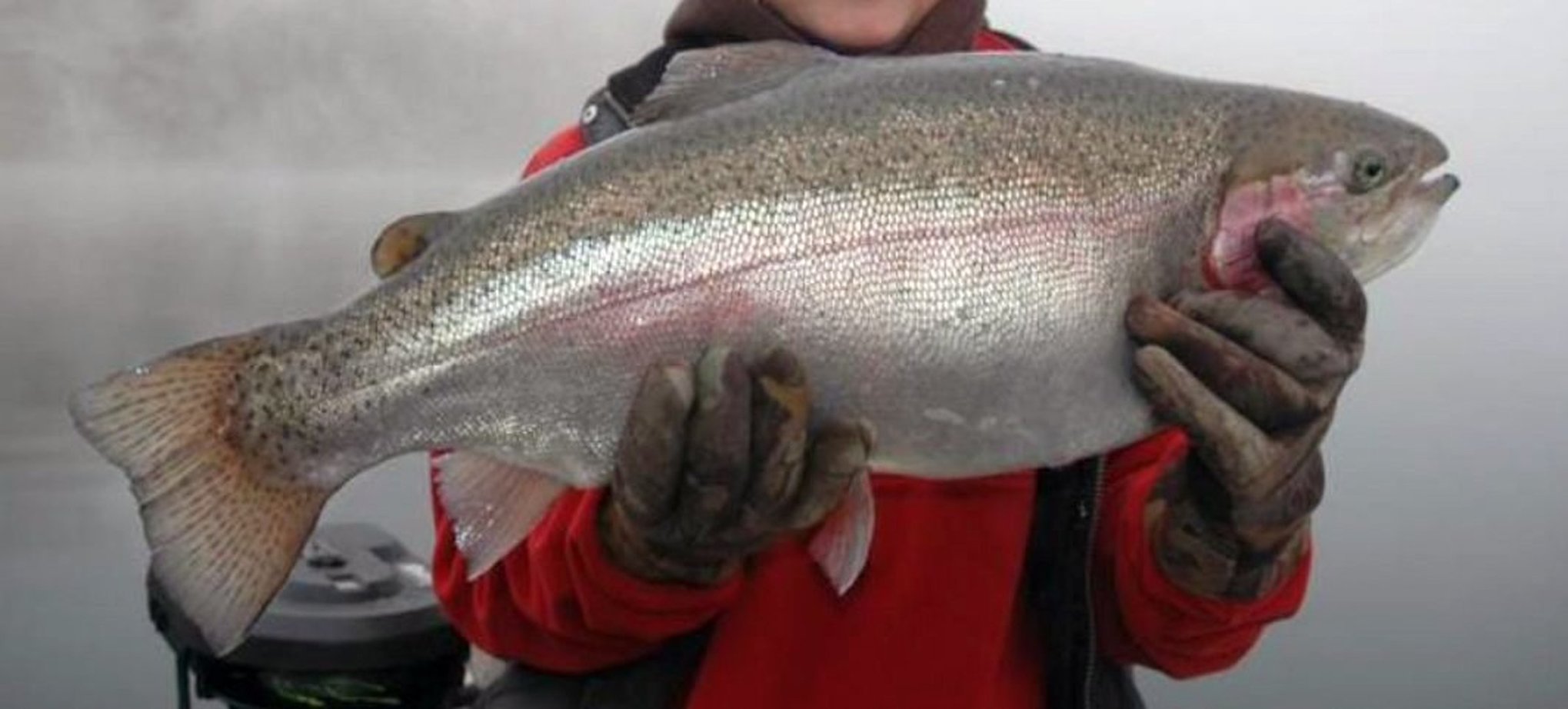Washington’s Department of Ecology has revised four water quality permits to Cooke Aquaculture to farm steelhead in net pens it once used to raise Atlantic salmon.
Cooke had received approval from the Washington Department of Fish and Wildlife, but conservation groups sued to block their issuance. The facilities are located near Bainbridge Island and La Conner, and are now permitted for steelhead, also known as rainbow trout.
In March 2018, Washington state’s Legislature voted to phase out the farming of non-native finfish after some 500,000 Atlantic salmon escaped from a Cooke farm near Cypress Island the previous year.
In transitioning to steelhead, Cooke has found a way to continue net-pen operations in the state, as steelhead are native to the Pacific Northwest. The permits allow Cooke Aquaculture to farm sterile, all-female steelhead in marine net-pens at four sites in Puget Sound. Most of the fish cannot reproduce.
The Department of Ecology’s issuance of the permits comes after a public review and comment and revisions made through October 2020 on draft permits released in September 2020. The department received 147 unique submissions, of which 116 comments opposed the issuance of the permits and 26 supported the Cooke’s application. Five submissions did not specify a position but asked questions and identified concerns not within the scope of the department’s ability to modify the permits, it said.
The Global Aquaculture Association, the Lummi Tribal Nation, the Suquamish Tribe, the Orca Conservancy, the Aquatic Life Institute, and the Fish Welfare Initiative all submitted comments, as did Cooke’s partner in its net-pen farming operations in Washington, the Jamestown S’Klallam Tribe.
“We acknowledge there is still skepticism regarding saltwater fish pen operations since the 2017 collapse of a net pen containing Atlantic salmon near Cypress Island in Skagit County. We firmly believe that confidence will be restored,” Jamestown S’Klallam Tribe Chair and CEO W. Ron Allen wrote in his comment. “The NPDES permit materials modified by ECY demonstrate clear environmental protection practices and increased monitoring, inspections, and reporting; as well as clear preparedness for accidents. An ongoing cultural identity of Jamestown Tribe includes stewardship of our seafood resources. Further, JST strives for excellence and environmental integrity in all of its endeavors. The Port Angeles Harbor net-pen aquaculture opportunity will enable JST to continue our traditions, feed our families and provide jobs, fish, and shellfish to our neighboring communities.”
Modifications made by the Department of Ecology to the draft permits include additional requirements on net-pen maintenance, reporting for fish feed consumption, notification of state agencies in case of unusual events that could potentially lead to fish escape, and uptake of new technologies as they are developed that reduce or prevent discharge of uneaten feed and fish waste.
"We welcome the multi-agency approvals to farm trout in Puget Sound," Cooke Vice President of Public Relations Joel Richardson said in an emailed statement to SeafoodSource. "This favorable science-based decision follows on the November ruling by the King County Superior Court to uphold a permit granted to Cooke Aquaculture Pacific by the Washington Department of Fish and Wildlife for the farming of sterile all-female Pacific steelhead trout in Puget Sound."
Northwest Aquaculture Alliance Executive Director Jeanne McKnight applauded the decision, noting that in addition to the Department of Ecology’s review, the Washington Department of Fish and Wildlife spent a full year analyzing potential impacts to Puget Sound, including the review of more than 150 studies on marine aquaculture.
The time spent completing the scientific review cost Cooke, according to the company's Pacific General Manager Jim Parsons. All net pens operated by Cooke in Washington are currently empty, with the company’s final Atlantic salmon harvest having been completed in October 2020.
“When coupled with the year spent obtaining permission from the Department of Fish and Wildlife to do so, we are now faced with a nearly untenable situation,” he wrote in his public comment. “As an entity, we chose to follow the guidance given us by the state legislature and cease the rearing of Atlantic salmon in Puget Sound, even though we would still legally be able to do so until the expiration of our leases in 2022. The farming of aquatic animals in the locations for which the draft NPDES permits are being considered has occurred for over three decades under an assortment of owners. Previous ownership, a Chicago-based venture capital company, had unfortunately allowed the marine farm infrastructure to fall into disrepair.”
Parsons said Cooke has spent millions to modernize and upgrade all of the equipment at its Washington farms since it purchased the operation as part of its acquisition of Icicle Seafoods in 2016.
“With the understanding that all food production has some form of environmental impact, we owe it to ourselves to seek the truth on the real impacts of our protein production systems,” Parsons wrote.
Originally published on SeafoodSource







